I have a table like this:
// financial_supporter
+----+---------+--------+
| id | user_id | amount |
+----+---------+--------+
| 1 | 342 | 1000 |
| 2 | 234 | 6500 |
| 3 | 675 | 500 |
| 4 | 342 | 500 |
| 5 | 89 | 800 |
| 6 | 234 | 1500 |
| 7 | 342 | 1200 |
+----+---------+--------+
I need to select all columns of table above plus one more column named "for_the_n_time". And it should be containing how many times the user has supported us.
So the expected result is:
// financial_supporter
+----+---------+--------+----------------+
| id | user_id | amount | for_the_n_time |
+----+---------+--------+----------------+
| 1 | 342 | 1000 | 3 | -- for the third time
| 2 | 234 | 6500 | 2 | -- for the second time
| 3 | 675 | 500 | 1 | -- for the first time
| 4 | 342 | 500 | 2 | -- for the second time
| 5 | 89 | 800 | 1 | -- for the first time
| 6 | 234 | 1500 | 1 | -- for the first time
| 7 | 342 | 1200 | 1 | -- for the first time
+----+---------+--------+----------------+
Here is my query which is incomplete. I guess I need a self-join, but I cannot implement totally.
SELECT fs.*, <I don't know> as for_the_n_time
FROM financial_supporter fs
INNER JOIN financial_supporter as fs2 ON <I don't know>
WHERE 1
ORDER BY id DESC
Any idea how can I do that?
Edited: Also how can I make it DESC order like this:
// financial_supporter
+----+---------+--------+----------------+
| id | user_id | amount | for_the_n_time |
+----+---------+--------+----------------+
| 7 | 342 | 1200 | 3 | -- for the third time
| 6 | 234 | 1500 | 2 | -- for the second time
| 5 | 89 | 800 | 1 | -- for the first time
| 4 | 342 | 500 | 2 | -- for the second time
| 3 | 675 | 500 | 1 | -- for the first time
| 2 | 234 | 6500 | 1 | -- for the first time
| 1 | 342 | 1000 | 1 | -- for the first time
+----+---------+--------+----------------+
